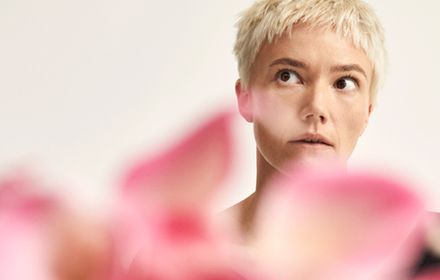
General
At A Glance: A Midsummer Night’s Dream
25 Aug 2021

10 Great Shakespeare Soliloquies: Helena

We asked an expert panel to pick their favourite soliloquies – and they picked some absolute firecrackers. Today, we reveal the first in our series of 10.
Compiled by Andy McLean
Join the debate
Which Shakespeare soliloquies strike a chord with you? Share your choice on Twitter, Facebook, Instagram or LinkedIn.
Helena (A Midsummer Night’s Dream, Act 1 Scene 1)
Shakespeare had an uncanny knack for seeing the world through the eyes of everybody – from kings to peasants; from sorcerers to drunkards. But perhaps his greatest feat of empathetic gymnastics was to get inside the minds of young people. While Romeo and Juliet is the most famous example of this, he pulls the trick off just as neatly in Helena’s soliloquy at the end of Act 1 Scene 1 in A Midsummer Night’s Dream.
Bell Shakespeare’s Head of Education, Joanne Erskine, loves discussing Helena’s words with teachers and students in schools. “She’s a teenage girl bemoaning the fact that everyone is in love with her best friend, and nobody is in love with her,” says Erskine. “It could be a teenager speaking today. She’s saying, ‘The whole world is falling down around me, but I’ve come up with a plan.’ It’s a terrible plan and it doesn’t sound like it will work but it’s a pivotal moment in the play.”
Erskine particularly enjoys the opening line of the soliloquy: How happy some o’er other some can be! “Helena’s talking about how fortunate Hermia is when, in fact, Hermia is having an awful time. Under threat of possible death, Hermia’s just been forced to give up everything and flee her home. She’s not very happy at all! But Helena is so wrapped up in her own troubles, she doesn’t see it. It’s a typically teenage way of looking at the world.”

Here’s Helena in full flow:
How happy some o’er other some can be!
Through Athens I am thought as fair as she,
But what of that? Demetrius thinks not so.
He will not know what all but he do know.
And as he errs, doting on Hermia’s eyes,
So I, admiring of his qualities.
Things base and vile, holding no quantity,
Love can transpose to form and dignity.
Love looks not with the eyes but with the mind,
And therefore is winged Cupid painted blind.
Nor hath Love’s mind of any judgement taste –
Wings and no eyes figure unheedy haste.
And therefore is Love said to be a child,
Because in choice he is so oft beguiled.
As waggish boys in game themselves forswear,
So the boy Love is perjured everywhere.
For ere Demetrius looked on Hermia’s eyne,
He hailed down oaths that he was only mine.
And when this hail some heat from Hermia felt,
So he dissolved, and showers of oaths did melt.
I will go tell him of fair Hermia’s flight.
Then to the wood will he tomorrow night
Pursue her. And for this intelligence
If I have thanks, it is a dear expense.
But herein mean I to enrich my pain,
To have his sight thither and back again.
From September, Bell Shakespeare’s 2021 production of A Midsummer Night’s Dream will be touring theatres nationally.
Hear James Evans discuss Helena’s soliloquy with Gabrielle Scawthorn, who plays Helena in our 2021 production, in our Speak The Speech podcast.
To read about other soliloquies in our series, see the Bell Shakespeare blog.
To be continued…
Stay tuned on social media in the coming days as we explore more sensational soliloquies. Follow us on Twitter, Facebook, Instagram and LinkedIn.
Stay in touch
Sign up to a range of Bell Shakespeare enewsletters